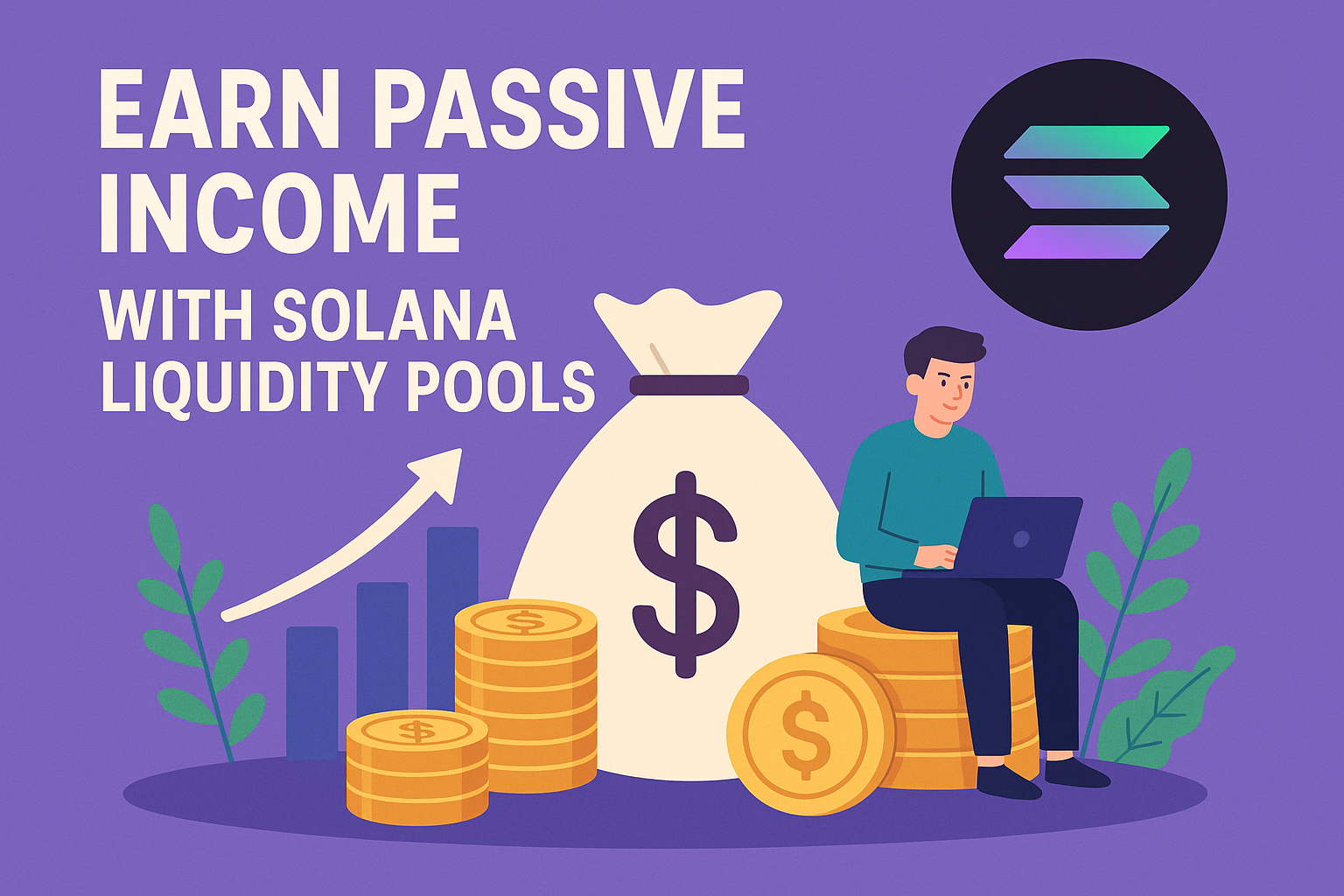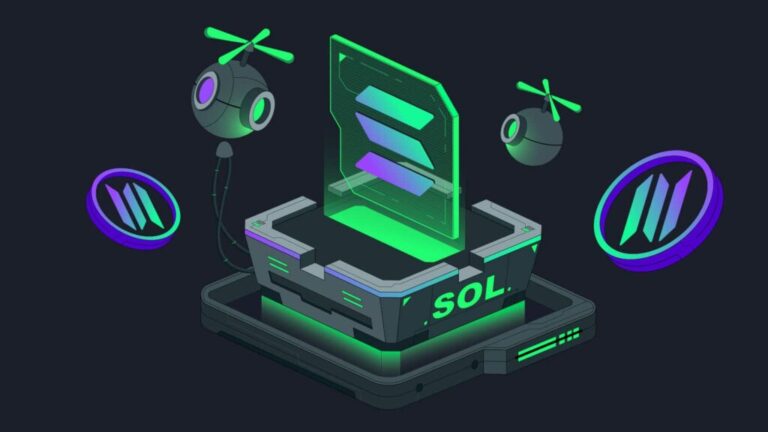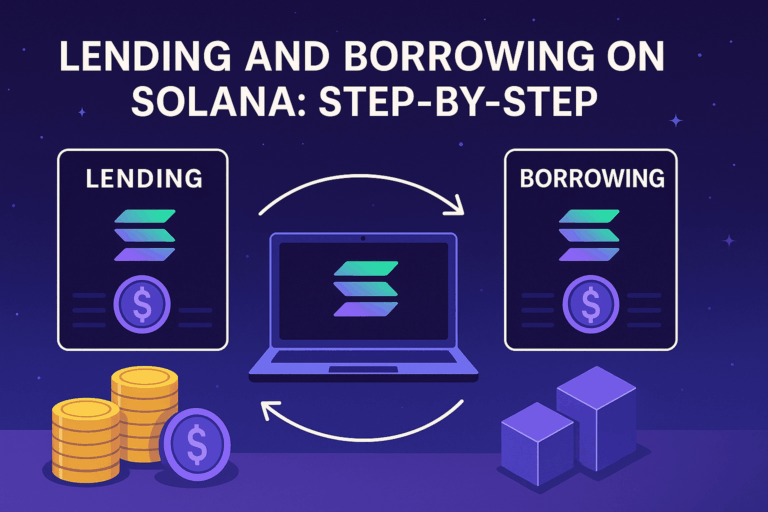Benefits of Staking Solana Tokens
Solana (SOL) has emerged as one of the fastest and most scalable blockchain platforms, attracting developers, investors, and crypto enthusiasts worldwide. One of the most rewarding ways to participate in the Solana ecosystem is through staking Solana tokens. By delegating your SOL to validators, you can earn rewards while contributing to the network’s decentralization and security. In this article, we’ll break down the benefits of staking Solana tokens, how it works, and why it’s worth considering if you’re holding SOL in your portfolio.
Table of Contents
What Is Solana Staking?
Before diving into the benefits, let’s clarify what staking means in the Solana ecosystem. Unlike proof-of-work blockchains such as Bitcoin, Solana uses a Proof-of-Stake (PoS) mechanism combined with its innovative Proof-of-History (PoH) protocol. This allows the network to process thousands of transactions per second efficiently.
How Staking Works on Solana
- Holders of SOL tokens delegate their coins to validators.
- Validators run nodes that verify and secure transactions.
- In return, stakers receive a portion of transaction fees and inflation rewards.
- Stakers maintain full ownership of their tokens while they are delegated.
This model ensures that both validators and delegators are incentivized to keep the network reliable and secure.
Top Benefits of Staking Solana Tokens
1. Passive Income Opportunities
One of the primary benefits of staking Solana tokens is earning passive income. Depending on the validator and market conditions, annual percentage yields (APY) typically range between 5% and 8%. This is significantly higher than traditional savings accounts and allows holders to grow their SOL holdings over time.
2. Contributing to Network Security
When you stake SOL, you are actively participating in securing the Solana blockchain. Validators with more delegated tokens are more trustworthy, making the system more resistant to attacks. Stakers, therefore, help maintain a robust and decentralized ecosystem.
3. Retaining Ownership of Your Assets
Unlike some yield-farming methods or centralized lending, staking doesn’t require you to give up ownership of your tokens. Your SOL remains in your wallet, merely delegated to a validator. This ensures a balance between earning rewards and maintaining control of your assets.
4. Supporting Decentralization
Staking Solana tokens with different validators promotes decentralization. A diverse set of validators prevents centralization of power and keeps the network more democratic, fair, and censorship-resistant.
5. Compounding Rewards
By re-staking your earned rewards, you can take advantage of compounding interest. Over time, this significantly increases your overall returns. Many wallets even provide auto-compounding features, making the process seamless.
6. Lower Barrier to Entry
Compared to other blockchains, Solana offers a user-friendly staking process with relatively low entry requirements. You don’t need expensive hardware or technical expertise—just SOL tokens and a compatible wallet.
How to Stake Solana Tokens
Staking SOL is simple and accessible to beginners. Here’s a step-by-step guide:
- Choose a Solana-compatible wallet, such as Phantom or Solflare.
- Deposit your SOL tokens into the wallet.
- Select a validator from the list provided in the wallet interface.
- Delegate your tokens with a few clicks.
- Start earning rewards automatically as your validator participates in the network.
Best Wallets for Solana Staking
- Phantom Wallet – popular for its user-friendly interface.
- Solflare – offers mobile and web versions with staking support.
- Ledger Hardware Wallet – for maximum security when staking SOL.
Risks of Staking Solana Tokens
While staking offers numerous advantages, it’s important to understand the risks involved:
- Validator risk: If your chosen validator is unreliable or penalized, you may receive fewer rewards.
- Lock-up periods: While SOL tokens can generally be unstaked, there is a “cooldown period” of around 2–3 days before they become liquid again.
- Market volatility: Rewards are paid in SOL, so your overall gains depend on the token’s market value.
Frequently Asked Questions About Solana Staking
Is staking Solana safe?
Yes, staking Solana is considered safe because you retain ownership of your tokens. However, safety also depends on selecting a reliable validator.
How much can I earn staking SOL?
Earnings vary based on network conditions and validator performance. On average, you can expect 5–8% APY.
Can I unstake my SOL anytime?
Yes, but keep in mind that unstaking comes with a short “cooldown” period before tokens are fully available for transfer.
Do I need a minimum amount of SOL to stake?
No strict minimum exists, but wallets often require a small amount of SOL to cover transaction fees.
Benefits of Staking Solana vs. Other Cryptocurrencies
| Blockchain | Staking APY (Approx.) | Lock-up Period | Ease of Use |
|---|---|---|---|
| Solana | 5–8% | 2–3 days | Beginner-friendly |
| Ethereum 2.0 | 4–6% | Months (until withdrawals enabled) | Intermediate |
| Polkadot | 10–12% | 28 days | Moderate |
Why Staking Solana Is Worth Considering
The benefits of staking Solana tokens extend beyond financial rewards. By staking, you are playing an active role in supporting one of the most innovative blockchain networks. Whether your goal is to generate passive income, support decentralization, or secure your assets, staking SOL offers a balanced opportunity.
Conclusion: Should You Stake Solana Tokens?
Staking Solana tokens is a compelling choice for long-term investors and crypto enthusiasts alike. With attractive APYs, strong network fundamentals, and ease of participation, SOL staking strikes an ideal balance between profitability and security. As with any investment, be mindful of the risks, diversify across validators, and consider your financial goals.
Ready to take the next step? Explore Solana wallets, choose a trustworthy validator, and start earning passive rewards today while contributing to the growth of one of the fastest blockchain ecosystems in the world.



Comments